
Experts Talk Transportation
An Interview Series Exploring New Trends and Approaches
Experts Talk is an interview series with technical leaders from across our transportation practice, focusing on some of the most pressing concerns and disruptive trends affecting the industry today. Each interview illuminates a different aspect of transportation infrastructure planning, design and delivery, including:
- Technology Planning & Integration
- Emerging Mobility
- Alternative Project Delivery
- Sustainability & Resiliency
- Project Planning
- Infrastructure Design
Check back regularly to gain insights from specialized experts and thought leaders behind our award-winning, full-service consulting practice. Contact HDRTransportation [at] hdrinc.com (HDRTransportation[at]hdrinc[dot]com) for more information.
Technology Planning & Integration
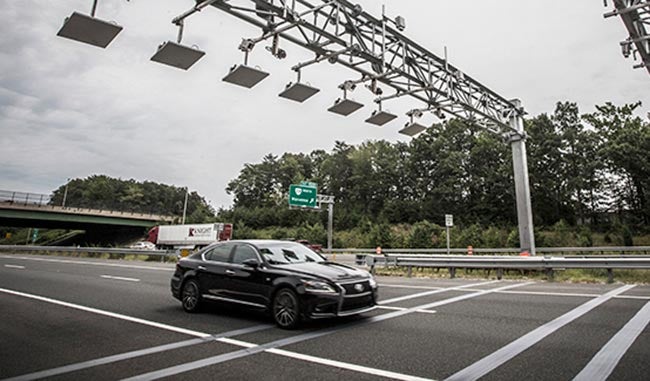
Practical Road Pricing Strategies

Managed lanes, tolling or congestion pricing can improve traffic flow, reduce emissions and provide an alternative revenue source for transportation agencies. David Ungemah, who has spent three decades providing road pricing solutions across North America, answers questions about the environmental process, how to make these strategies politically palatable and what's next in the industry.
Read the interview | Download PDF
Integrated Project Management Information Systems


New tools and workflows are streamlining the development of project dashboards and other PMIS tools that help project leaders better deliver infrastructure. Platforms like QuickBase help bring existing systems together in a single source of truth for projects. Project controls experts Brad Robinson and Brandon Joy share how creating a central source of data from many sources is keeping projects connected and informed.
Read the Interview | Download PDF
Project Controls and Data-Informed Decisions

Modern project controls tools offer owners a comprehensive and current understanding of project progress, improved data-informed decisions and the ability to better anticipate and mitigate risks. Miloš Vasiljević explains how these tools are enabling owners to be more proactive and describes how integrations with other disciplines are creating exciting possibilities.
Read the Interview | Download PDF
Return on Investment for Digital Delivery


As transportation agencies explore the possibilities of digital delivery and BIM for infrastructure, the question for many is “Are we going to get our money’s worth?” Transportation BIM leader Alexa Mitchell and economics director Chris Williges share the answer (a clear yes) and more insights from 18 months of rigorous research into the costs and benefits of applying new digital delivery tools on transportation projects.
Read the Interview | Download PDF
BIM and 3D Design in the Field

3D design is fundamentally changing the way that transportation projects are delivered. Nationally recognized BIM expert Alexa Mitchell explains how the technology will affect those using new applications in the field, what designers and owners need to know and the benefits of these new models.
Read the Interview | Download PDF
Staying Up to Date on ITS

Modern technology keeps us safer, gets us to destinations more efficiently and causes less harm to the environment. Joey Yang, director of HDR's transportation technology practice, shares the background of intelligent transportation, its trends and where it's going from here.
Read the Interview | Download PDF
All-Electronic Tolling for Managed Lanes and Toll Roads

As electronic tolling technologies have developed over the last decade, transportation professionals are seeing a switch from manual toll collection to all-electronic tolling collections. Engineer Phil Riggio answers four questions about the advancements taking place in AET for managed lanes and toll roads.
READ THE INTERVIEW | Download PDF
Integrated Bridge Systems

Engineers developing intelligent transportation systems or structural health monitoring for bridges today need to constantly leverage emerging technologies to enhance public safety. We asked engineer Michael Whalen how the advanced technologies used in today’s integrated bridge systems benefit both the public and owner-operators.
READ THE INTERVIEW | Download PDF
Emerging Mobility
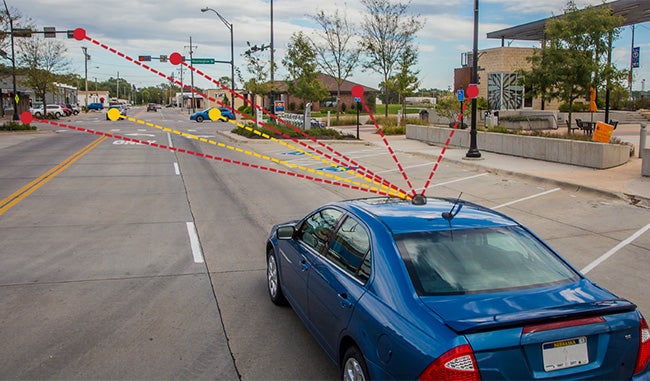
Power Optimization to Prepare for Zero Emissions Rail Vehicle Technology

Electric and hydrogen-fueled trains are arriving in the market and transit systems and railroads are exploring decarbonization. Rail vehicle technology expert Marcin Taraszkiewicz shares how optimizing power requirements can help owners and operators prepare for this zero emissions future.
Read the Interview | Download PDF
Rail and Intermodal Facility Electrification

Transitioning an intermodal railyard or other rail facility to green energy involves infrastructure changes that require time and planning to properly implement. Sustainability and power expert Will Kirby explains what owners need to know about electrification of these facilities and how to start the journey.
Read the Interview | Download PDF
Developing Statewide Electric Vehicle Marketing Plans

Encouraging the adoption of electric vehicles is critical for states as they install infrastructure and seek to reach emissions goals. Communications expert Katie Angell explains why widespread EV education plans are needed, how and when to start one, and important elements for communities to consider.
Read the Interview | Download PDF
Wireless Power Transfer and Electric Vehicle Applications

Wireless power transfer offers the possibility of sending power to electric vehicles through the air, with no cord, no cable, no plugs. Electronics systems expert Thomas Stout explains how some transportation agencies are already using this technology and why all planners should be paying attention.
Read the Interview | Download PDF
Preparing Communities for Electric Vehicles

Communities are embracing the potential of electric vehicles to help meet air quality and emissions goals. Zero emissions mobility expert Rob Mowat discusses the need for community preparedness plans and explains why smart community leaders should begin working on this now.
Read the Interview | Download PDF
Funding Strategies for Zero Emissions Fleet Conversions

Fleet owners across the U.S. have embraced the possibilities of converting their vehicles to zero emission fuels and now are exploring how to pay for it. Financial expert Eric Rouse discusses the role of financial planning in fleet conversions, funding options and why it makes sense to start the process now.
Read the Interview | Download PDF
Connected and Automated Vehicle Microsimulation

What impact will connected and automated vehicles have on transportation agencies' infrastructure? Senior traffic engineer Mike Forsberg shares how microsimulation holds almost limitless potential to help agency leaders make better-informed decisions.
Read the Interview | Download PDF
Electric Fleet Charging Infrastructure Design

Converting a fleet to all-electric involves a lot more than buying new vehicles and accepting the charge they provide. Engineer and project manager Sean Everett explores how to design infrastructure and operating protocols that match the right charging strategy to manage electric demand and ensure a smooth transition.
Read the Interview | Download PDF
Impact of Autonomous Vehicles on Urban Transit

Autonomous vehicles expected to play an ever greater role in public transit options, improving access and boosting services for citizens. What are the impacts for government agencies, and what about others who share the roads? Josh Sikich, a transportation technology program manager explores that and more.
READ THE INTERVIEW | Download PDF
Implications of AV/CVs on City Development

Emerging technologies, such as automated and connected vehicle adoption, can maximize land use and minimize long-term maintenance costs due to high-density development. Transportation planner Justin Robbins discusses how these disruptive technologies could reshape the way that cities are planned.
READ THE INTERVIEW | Download PDF
Alternative Project Delivery

The Value of Commercial Management


Navigating risks and managing contract issues can be a constant concern for infrastructure owners. Commercial management experts Brandon Joy and Guinevere Ngau focus daily on the commercial aspects of projects. Together they explain how this proactive approach can help preserve funding, reduce project risk and streamline project delivery with a proactive approach to challenges.
Read the Interview | Download PDF
Navigating Modern Design-Build Projects

Many in the transportation industry are reassessing their use of fixed-price design-build, discouraged by a rise in claims, disputes and litigation. Alternative delivery expert Jay Chiglo explains changes in design-build and why the industry is excited about the promise of the progressive design-build delivery method.
Read the Interview | Download PDF
Benchmarks for Success in Alternative Delivery Procurement

Success on an alternative delivery project begins with a holistic view that looks beyond initial award value to consider the final tally. Doug Jackson shares how to better measure the success of procurement, explains current challenges in alternative delivery and discusses how improved risk management is changing the project delivery landscape.
Read the Interview | Download PDF
Leveraging Innovation in Infrastructure P3s

Interest in public-private partnerships is growing as a method to deliver needed infrastructure. Gail Lewis, a leader in project finance and strategic planning, discusses the latest trends in funding and financial strategy behind these complex arrangements and shares how to get the most value from transportation P3s.
Read the Interview | Download PDF
Construction Management on Major Transportation Programs

Effectively managing the construction process on complex transportation programs is critical to keeping projects on schedule and within expected budgets. Tom Horkan explains how a strong construction management approach can mitigate risk, support program goals and provide strong on-site advocates for owners.
Read the interview | Download PDF
Risk Mitigation for Transit Construction

With many opportunities for major transit projects to veer off course, a good construction manager is critical to managing risk and avoiding unforeseen impacts to project budgets or schedules. Construction manager Justin Garrod shares how a proactive and collaborative approach on projects can best manage risk on transit infrastructure.
Read the interview | Download PDF
Life Cycle Risk Management for Complex Infrastructure Programs

Today's large and complex transportation programs come with a huge number of unknowns and uncertainty. Managing those through ongoing and robust risk management can help owners and program leaders make better informed decisions to stay on schedule and budget. Learn more from risk management and value engineering expert Jose Theiler.
Read the Interview | Download PDF
Demystifying Program Management for Owners

Asset-intensive infrastructure capital programs need services that are flexible and adapted to the unique needs of each owner and program. Erin Slayton, our transportation program management services director, shares wisdom on tailoring resources suited to each owner’s situation and sheds light on how to approach program management to achieve its potential.
Read the Interview | Download PDF
Mega Project Management for Signature Bridge Delivery

Designers of important, signature bridges also must be able to develop innovative solutions, coordinate multi-national design teams and execute comprehensive quality plans throughout the entire delivery process. Project manager and engineer Jeff Han talks about using highly technical teams to manage quality and risk on large-scale projects.
READ THE INTERVIEW | Download PDF
Accelerated Bridge Construction

Applying the techniques used in accelerated bridge construction to some or all structural members can expand design possibilities while safely accelerating delivery. If speed is the highest priority, senior bridge engineer Nick Burdette explains how we can replace bridges very quickly, sometimes in as little as a weekend.
READ THE INTERVIEW | Download PDF
Sustainability & Resiliency
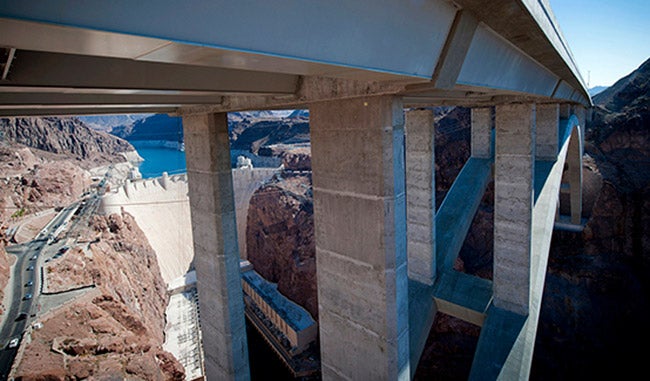
Addressing PFAS at Airports


Per- and polyfluoroalkyl substances, or PFAS, have become a growing concern for airports as their human health impacts have become clearer. Those concerns have followed a rise in environmental regulations seeking to sharply reduce or eliminate their use across industries. Senior program managers Marc Gambrill and Kate Garufi explain why airports are a particular focus of PFAS cleanup, the current status of regulations and how airports should be responding now to this environmental challenge.
Read the interview | Download PDF
Creating a Vision for Sustainable, Future-Ready Airports

Leaders of growing airports hope to enhance their economic and social benefits while at the same time reducing harm to the environment and the community. Environmental scientist Esther Chitsinde explains how this can be achieved by setting and pursuing sustainability goals, prioritizing customer experience and investing in innovation.
Read the Interview | Download PDF
Adapting Coastal Infrastructure to Protect Communities

Coastal communities today face an array of challenging conditions, including erosion, flooding and recurring severe weather events, all compounded by ongoing sea level rise. Engineering expert Brent Moore addresses how coastal structures can mitigate these risks, with resilient and context-sensitive designs. They discuss how communities can assess risk for sea level rise and address aesthetic concerns on new and historic structures.
Read the Interview | Download PDF
Bridge Asset Management through Rope Access Inspections

Regular bridge inspections are critical, and rope access is a valuable option when conventional methods aren't practical or possible. Industrial rope access inspection lead Erin O'Malley has worked on hundreds of structures across North America and shares why bridge owners turn to rope access inspections, why the special skill is important and how the practice is changing bridge design.
Read the Interview | Download PDF
Sustainable Bridge Design


From planning to concrete selection, sustainability can be incorporated into the bridge planning process. Bridge experts Rob Richardson and Don Nguyen have been at the forefront of sustainable bridge design, and they discuss funding considerations, sustainable certifications and how true sustainability is achieved by balancing the three E's: economy, ecology and equity.
Read the Interview | Download PDF
The Economics of Sustainability and Resiliency

Resiliency and sustainability planning makes good financial sense — just ask an economist. Pamela Yonkin, ENV SP, has decades of experience performing economic analyses of transportation projects and shares what projects benefit from resiliency planning, the benefits provided and how economics is intertwined.
Read the Interview | Download PDF
Seismic Resiliency in Bridge Design

Using seismic analysis in bridge design and retrofits can create safer, more sustainable structures at similar construction costs. Bridge engineer Kuang Lim, who's worked on some of the most recognizable bridges in the nation, explains why seismic considerations are important, even outside of earthquake-prone areas.
READ THE INTERVIEW | Download PDF
Durable Airfield Pavement Solutions

With increasingly tight budgets for airfield pavement construction, renovations and repairs, it’s vital to ensure that new pavement is durable. Senior airfield paving engineer BJ Skar discusses how to tailor projects to each unique airfield and create pavement projects that will serve airport facilities for decades.
Read the interview | Download PDF
Project Planning
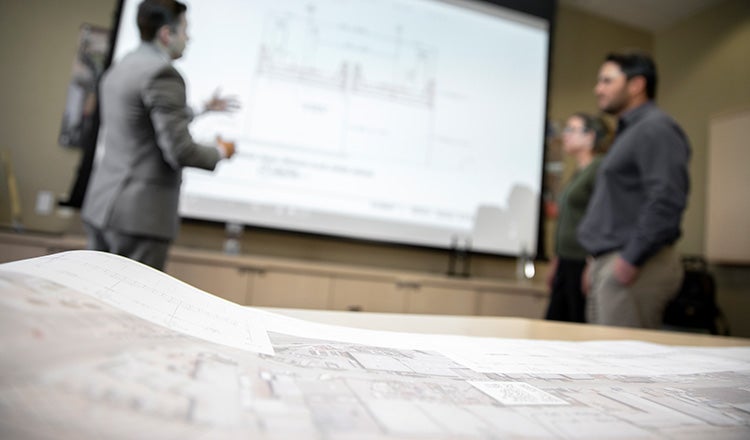
Cost Forecasting and Inflation Management


With rapid cost increases in the construction and infrastructure industry in recent years, improved cost forecasting has become a key strategy for owners. Economists Sarah Henly-Thomas and Bruno Penet discuss why cost forecasting is particularly important in today’s economic climate, explain ways in which better data can offer more benefits than flat rate contingencies, and reflect on how advances in technology hold promise for enhanced forecasting.
Read the Interview | Download PDF
Safe System Approach to Improve Road Safety


The Safe System Approach calls for the development of transportation infrastructure that recognizes that people are fallible and will make mistakes, but the outcome of their mistake should not result in a serious injury or a fatality. Transportation engineers Beth Wemple and Olivia Polinsky discuss the history of the approach, share what it means for road design and explain how its implementation will impact transportation planning and projects.
Read the Interview | Download PDF
Community Compensation on Infrastructure Projects

Compensating community members for their participation in the public process is one strategy to address the need to better engage underserved communities meaningfully and fairly. Public involvement expert Katie Caskey explains why the idea is gaining new attention, shares what it can look like on transportation projects and addresses some of the challenges in implementation.
Read the Interview | Download PDF
Social Equity Value Analysis


How can the transportation industry better measure the benefits of projects to low-income populations? Principal Economist Chris Behr and Transportation Equity Director Cathy LaFata discuss an approach based on a weighted benefit-cost analysis that reveals a new measure of projects' social value. This economic analysis method has recently been highlighted by federal guidance as a justifiable approach that can quantify the impact of capital programs on low-income populations.
Read the Interview | Download PDF
Building Transit Agency Brands

A strong and appealing brand can help transit agencies reinforce their importance in today’s transportation landscape. Strategic communications expert Samantha Dubay shares how the branding process sets the right expectations for agencies and their customers, leading to improvements in ridership and operations.
Read the Interview | Download PDF
Obtaining and Implementing IIJA Funds for Railroads

Using funds from the U.S. Infrastructure Investment and Jobs Act, freight railroads have the chance to finance previously unfeasible improvements. Federal Railroad Administration expert Cat Dobbs explains the new federal funding and how railroads can access it to make important safety improvements, while ensuring that they can successfully execute grant agreements once awarded.
Read the Interview | Download PDF
Freight Planning

Crafting the right freight plan can make real improvements to a region's economy, but it requires finding the right balance between freight needs and community needs. Freight planner Keith Bucklew explains the important components of a freight plan, the technology that is disrupting freight logistics and how short-term planning can be flexible enough to address supply chain problems.
Read the interview | Download PDF
Data-Informed Equitable Engagement


Harnessing publicly available data can uncover and analyze the unique needs and characteristics of communities, improving public engagement and better reaching traditionally underrepresented groups. Strategic communications experts Chelsea Collinge and Sabrina Colón share how this approach improves project understanding and leads to better, more informed planning and design.
Read the Interview | Download PDF
Environmental Justice in Transportation

Public transportation projects play a critical role in providing equity and can determine whether an entire area is accessible to everyone or not. Environmental justice principles provide a way for minority and low-income persons to be an integral part of the planning process. Cathy LaFata explains the environmental justice process and shows why it's important to project success.
Read the Interview | Download PDF
Expediting the Infrastructure Environmental Review Process


Finding efficiencies to expedite the review process can help important infrastructure projects advance quickly and remain viable while maintaining the needed emphasis on environmental protection. Environmental experts Diane Nulton and Taylor Horne explain federal programs such as NEPA Assignment that states can use to streamline reviews, the benefits of these programs and how to best implement them.
Read the Interview | Download PDF
Transit Capital Investment Grant Funding

Competition is high to secure discretionary grants from the FTA, with more eligible projects than available funding. Experienced transit project manager Mark Fuhrmann explains the Capital Investment Grants program, shares insights on creating successful applications and describes the biggest hurdles for agencies pursuing these grants.
Read the interview | Download PDF
Planning and Environmental Linkages


Planning and environment linkage studies are becoming increasingly popular with state and local transportation agencies, but are still fairly new. Many agencies are wondering when it makes the most sense to use this tool. PEL experts Gina McAfee and Jason Longsdorf explain the basics of PEL studies, when to consider using them and how the approach can benefit project schedules and funding.
Read the interview | Download PDF
Infrastructure Design
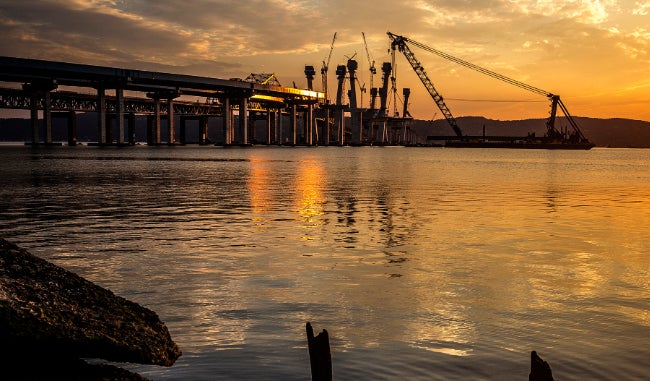
BRT and Urban Mobility

Bus rapid transit has become a popular solution for growing mobility challenges caused by population increases and roadway congestion. Our BRT lead Gina Thomas discusses funding opportunities available to support BRT projects, addresses challenges associated with electric buses, and reflects on how community input shapes projects.
Read the interview | Download PDF
Transportation Agency Staff Augmentation

Transportation agencies face continued challenges with staff recruitment and retention, at the same time that infrastructure funding is growing. Former FDOT executive Brian Blanchard shares how staff augmentation can help bridge this expertise gap and the benefits agencies can discover.
Read the Interview | Download PDF
Intermodal Freight Terminal Optimization

Engineer Chad Hewitt has managed the design and construction of intermodal freight facilities and gate systems across North America. He explores how intermodal facilities can improve the efficiency of existing yards, addresses trends in sustainability and offers examples of new options for supply chain flexibility.
Read the Interview | Download PDF
Realistic Signature Bridge Visualization

Aesthetics are integral to the design of signature bridges, and understanding how the structures will fit into their environment is critical. Transportation project designer Jimmy Vincent shares how his artistic approach and experience helps realistically depict projects in the planning stages, improving designs for their communities.
Read the interview | Download PDF
Parametric Bridge Design

In the same way that an Excel spreadsheet updates on input changes, parametric design updates 3D geometry and the supporting engineering analyses, live and in real time. Structural engineer Michael Roberts explains how this powerful process allows designers and owners to quickly identify and explore the impact of decisions, to create better bridges.
Read the interview | Download PDF
Form Finding for Signature Bridges

Signature bridge projects can be opportunities to reconnect neighborhoods and create a unique sense of place, but the challenges can seem intimidating. Bridge designer Michael Fitzpatrick explains how he finds consensus, shapes solutions and weaves aesthetics with community features to design structures that evoke the character of an area.
Read the Interview | Download PDF
Performance-Based Practical Design

Each transportation project has a unique purpose and needs, and performance-based practical design helps agencies find the most cost-effective solution to the specific challenges of a project. Transportation planner Jon Markt shares how agencies can seamlessly incorporate this efficient approach and get the most out of it.
Read the interview | Download PDF
3D Design and Deliverables

As 3D design tools have become more commonplace in the transportation industry, some organizations and agencies are exploring and adopting the use of 3D models as the binding legal deliverable for projects as well. Highways Director Will Sharp discusses this sea change in project design and delivery and its implications for stakeholders.
Optimizing Airport Construction Safety and Phasing Plans

Engaging stakeholders early and encouraging flexibility can head off problems on airport projects, says aviation expert Joe Grubbs. He describes strategies for getting stakeholders involved in the development of construction safety and phasing plans, and he explains how doing so can help mitigate any potential disruptions.
Read the Interview | Download PDF
Holistic Airport Design

Every airport project, no matter the size or complexity, should take into account how it will affect and be affected by all other aspects of the airport, says veteran aviation architect Kevin Ashton. He explains why collaboration and a big-picture approach are needed to achieve the best, most cohesive design in airports.
Read the Interview | Download PDF
Movable Bridge Solutions

Expert Rob Moses' innovations have influenced the design, inspection and rehabilitation of more than 200 bascule, swing and vertical-lift bridges, and other movable structures, including retractable stadium roofs. He talks about the emerging technologies that will impact movable bridges and the operations and maintenance schedules that make them unique.
READ THE INTERVIEW | Download PDF
Bridge Innovation through Collaboration

The most successful innovations are born through smart collaboration, when unique perspectives join together toward a common goal that benefits all team members. Learn from Tammy Heffron, one of our regional bridge leaders, about the keys to a successful collaborative process and how to grow ideas into solutions.
READ THE INTERVIEW | Download PDF
Bridge Design Innovation

“Because we’ve always done it this way,” is not part of bridge engineer Manuel Carballo’s vocabulary. We talked with him about how bridge design is evolving and how innovative design is dependent on the people who drive it.
READ THE INTERVIEW | Download PDF




